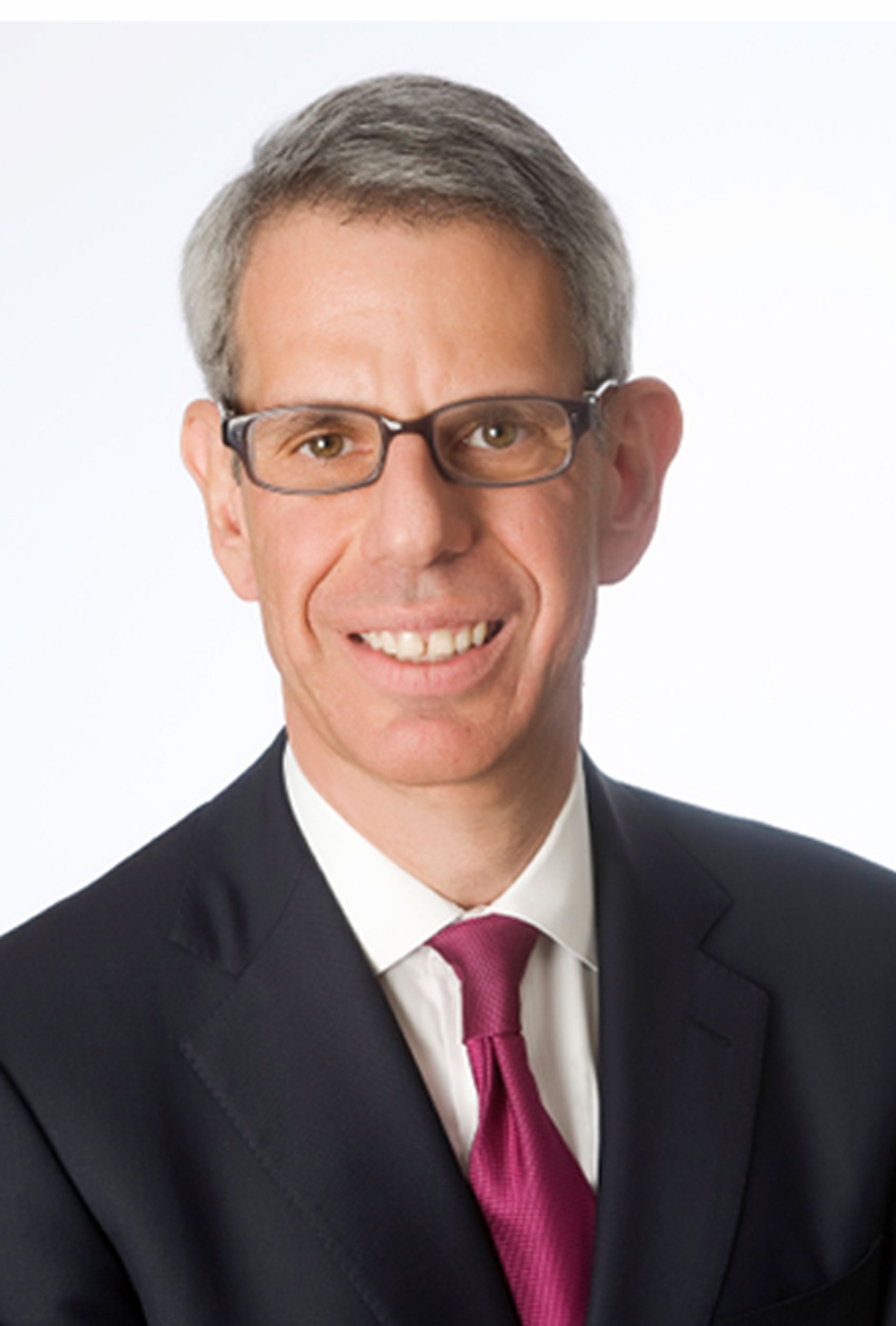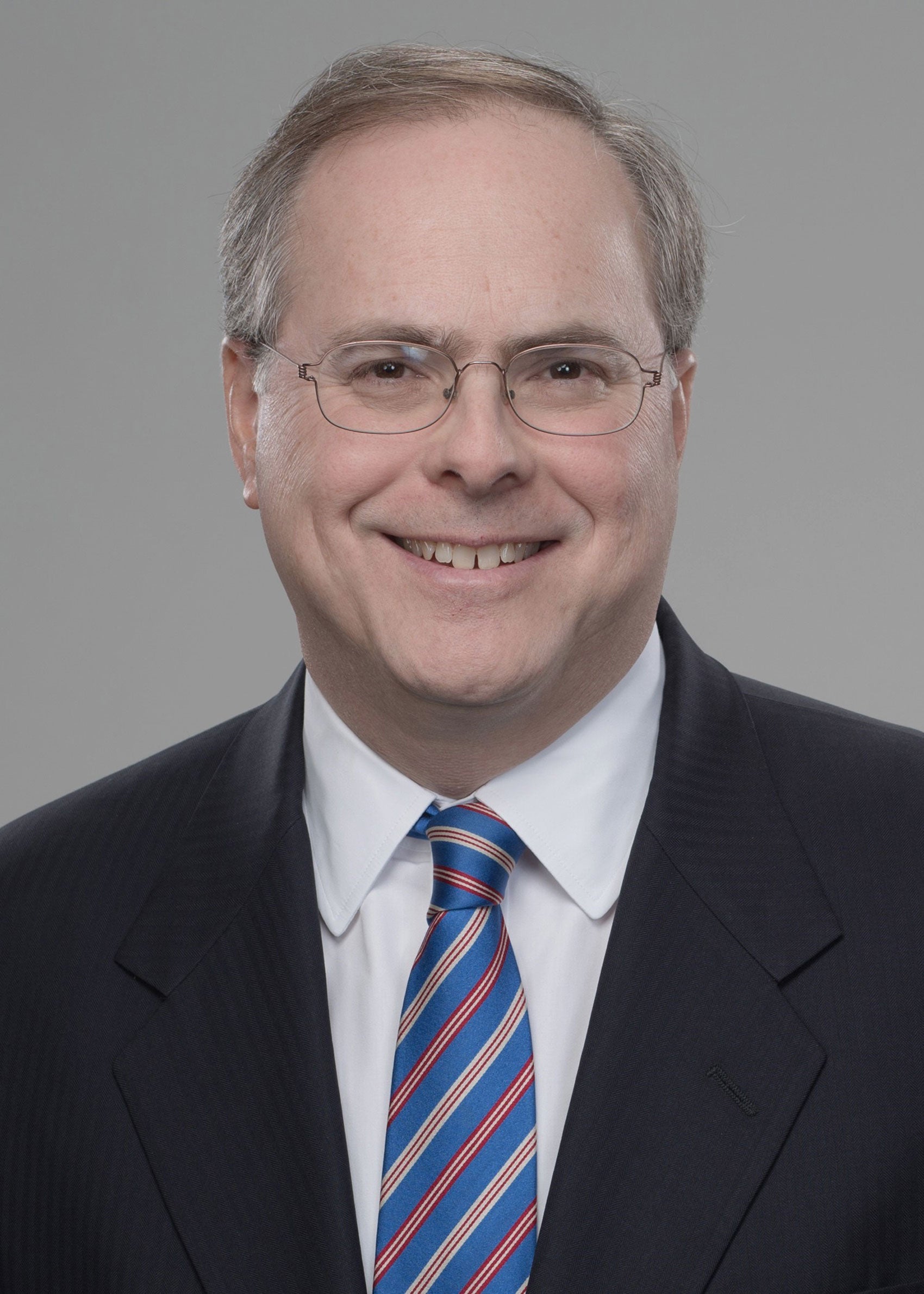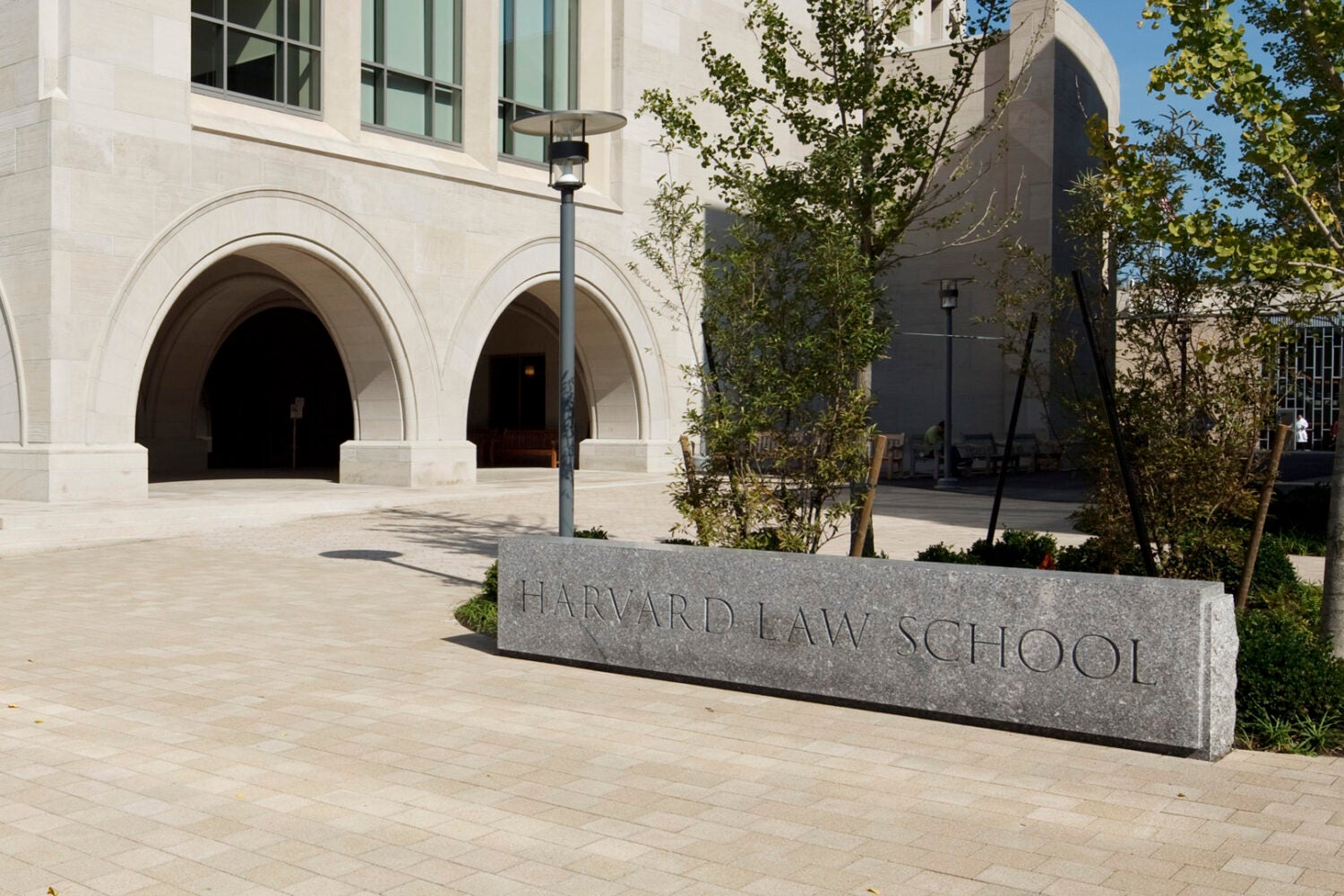Next year, Harvard Law School will expand its transactional law offerings with a new Transactional Law Workshop designed to provide students with hands-on experience learning about the issues at stake in complex corporate transactions and reviewing, drafting and negotiating related documents. For students interested in practicing corporate law, the new offering will serve as a capstone to their coursework in the field and will build on the portfolio of opportunities offered through the Law School’s Transactional Law Clinics and Transactional Law Clinical Workshop.
Two directors, who are counted among the nation’s most experienced mergers and acquisitions experts, David J. Sorkin ’84, the former chief legal officer and presently a senior advisory partner of KKR, Inc., and Alan M. Klein ’84, a partner and the past co-chair of the Global M&A Group of Simpson Thacher & Bartlett, LLP, will co-teach the new workshop. In a Q&A with Harvard Law Today, Sorkin and Klein explain that the course, modeled on the Trial Advocacy Workshop, will enable students to work directly with legal practitioners and business executives as they prepare documents and presentations and negotiate transactions.
Harvard Law Today: What is transactional law? Why is this new workshop important to today’s students?

David Sorkin: Transactional law is a broad discipline, encompassing the many forms of commercial transactions engaged in by businesses. While we are starting with a mergers & acquisitions transaction, our objective is for the Transactional Law Workshop ultimately to provide students the opportunity to obtain hands-on experience on a variety of complex corporate transactions. A key element in understanding the importance of this course is its focus on core transactional law skills, such as the ability to review, draft, and negotiate corporate documents and to synthesize issues and recommendations for clients. Lawyers have traditionally learned these skills after they began practicing law, and law firms were set up to teach many of these skills. But times have changed, and technology has been a precipitating factor. Law firms traditionally needed their most junior associates to perform nuts-and-bolts, almost clerical, tasks. Technology has eliminated the need for young lawyers to do much of that kind of work. Instead, new lawyers need the skills to be able to jump in and perform more substantive work. This should be fulfilling from a professional perspective. But it does put a premium on graduating lawyers having the practical skills which enable them to engage in more advanced work from the outset of their careers.

Alan Klein: In addition, the Transactional Law Workshop will give Harvard Law students an opportunity to put into practice the legal principles that they have been learning in other courses. They’ll discover that the issue spotting that they have applied to case law really matters in reviewing transactional documents, for example.
HLT: What attracted each of you to this field? What have you found to be most challenging and most rewarding?
Klein: A corporate transaction means two parties, and sometimes more, are coming together to create something that didn’t exist before. Each of the parties hopes to benefit from whatever that transaction might be. The range of possible kinds of transactions is vast. A corporate transaction could be one company buying another, organizing the financing of a new venture, taking a growing company public on the stock exchange, representing a bank providing a complicated loan to a company secured by that company’s assets – the list is almost endless. For me, each transaction is an opportunity to learn about a new business and the industry that it is in and to try to help that client craft a strategic transaction that achieves their goals, whatever they may be. I’ve had the good fortune to work on some of the largest and most prominent M&A transactions that have taken place. What I discovered early in my career is that helping a client through a complicated deal can be exhilarating and deeply satisfying.
Sorkin: I really enjoy helping to solve problems and find solutions, which can involve building consensus in a corporate transaction or, as I’ve been able to experience at KKR, helping create the legal and regulatory framework for a company to mature and develop. In addition, I am really looking forward to the opportunity to launch something new with Alan – the Transactional Law Workshop – where we will try to help HLS students develop as transactional lawyers.
HLT: What can you tell us about the new course? What will students have a chance to learn?
Klein: This course, which will be held in the spring semester of the 2023-24 school year, is intended to take students through a simulated mergers and acquisition transaction from beginning to end. For this coming class, we will be guiding the students through the takeover of a public company by a private equity firm. This is one of the most fraught and dramatic transactions which can take place in the corporate world. Students will have the chance to work on the actual forms of documents, negotiate them, present to clients the issues involved in the negotiations and counsel clients as to how to address them. We will involve experienced lawyers, M&A advisers and business clients to work with small groups of students. Students will learn how to collaborate with one another and with their clients as well as get exposed to the nuts and bolts and dynamics of what makes up an M&A transaction.
Sorkin: While there are lots of interesting transactions to choose from, in launching the workshop with a “take private” transaction, we tried to pick a particularly exciting and interesting one.
HLT: How much does this field of practice change and how will the workshop reflect that?
Sorkin: The corporate transactional practice has evolved substantially since Alan and I started practicing in the 1980’s. Some of the catalysts of those changes have been larger societal trends. Two examples are globalization, which has increased both the range of possible transactions as well as the scrutiny related to foreign direct investment and competition, and inequality, which has increased the focus on the impact of mergers and acquisitions on employment, local communities, and executive compensation. Students in the workshop will no doubt encounter contractual provisions related to some of these issues. The maturation of the private equity industry – and leveraged buyouts in particular – has been another larger trend over the past forty years and has driven tremendous innovation in financing techniques as well as both law and practice involving executive compensation and conflicts. Since our workshop in 2024 involves a private equity buyer, a number of those issues will no doubt arise.
HLT: Student collaboration is listed as an important element of the workshop. What will that look like, and why was that important to include?
Klein: Any complex corporate transaction requires a team of people working together on each side in order to help execute the transaction. Outside lawyers need to bring multiple disciplines to the effort. They need to work closely with the team to assist the client in achieving their goals. For example, the outside legal team working for a party to the sale of a public company to a private equity buyer needs to include individuals with expertise in mergers and acquisitions, tax, financing, employee benefits, intellectual property, environmental law, real estate, and so on. That group needs to know how to collaborate with one another and to work seamlessly with their counterparts and their client. So, getting exposure to that sort of teamwork seemed essential to us as we started thinking about how to design the course. To be honest, working with a team of colleagues on a transaction such as the one our class will explore is one of the most fun aspects of practicing law. Students should be able to experience that.
Sorkin: And lawyers also need to work collaboratively with opposing counsel to achieve a negotiated, mutually beneficial result.
HLT: How do you anticipate the workshop will complement existing Harvard Law School offerings, such as those in negotiation?
Sorkin: The workshop should complement many aspects of what HLS already offers. “Issue spotting” is a core competency in many courses. And students may be surprised how often legal principles taught in Contracts and Corporations are applicable in an M&A workshop, not to mention in the actual practice of corporate law. By definition, a corporate transaction involves negotiation, so a student who has taken a negotiations class will be able to see how every aspect of a transaction involves some form of negotiation and they will be able to put their training to use. Even moot court and Trial Advocacy Workshops are relevant, since persuasive argument often comes into play when hammering out the terms of a corporate agreement.
HLT: You are both Harvard Law School alumni. Looking back at your time at HLS, which courses or skillsets have you found to be most valuable in your practice? Which teachers made the greatest impressions on you?
Klein: First and foremost, learning to “think like a lawyer” was an incredibly important tool to develop for me. Analyzing a situation, perceiving the different perspectives that can be brought to evaluating a set of facts, looking at precedents for guidance and developing a logical approach to coming to a decision is a skillset which has been fundamental to my legal career. Using that training lets me help my clients every day. With respect to the faculty I encountered – the Harvard Law faculty in the early 1980s was as impressive then as it is today. It was a time of incredible intellectual ferment. There were people like Clark Byse, who was at the end of his career at HLS and who really inculcated a degree of rigor in approaching the material that was inspiring. The late Phil Heymann had just come back from the Carter Administration and taking Criminal Law with him was a real privilege. Newer faculty then included Hal Scott and Gerald Frug, who I took courses with and who brought a tremendous enthusiasm to their subjects. And a class I took with Roberto Unger was eye-opening in the way in which he showed that assumptions we bring to the law could be, and needed to be, challenged and examined. I didn’t always agree with his conclusions, necessarily, but it was intellectually as stimulating as anything I have done. Students at HLS, then and today, are incredibly privileged to learn from one of the most talented and distinguished faculties in the world.
Sorkin: I very much second Alan’s point about learning to think like a lawyer. In fact, I’ve found that the analytic approach Alan describes is as useful in business as in law. I also agree with Alan’s comments about the law school faculty, then and now. Professor – later Dean – Clark taught my Corporations course and brought such great synthesis, framework, and passion. I still sometimes diagram a corporate transaction just as he used to do on his overhead projector. I felt the same about Professor Tribe, although without the diagrams. I’d also like to add a word about Harvard Law School students. Alan and I formed such great relationships and friendships at the law school, and the opportunity to work with a new generation is what above all is bringing us back.
Want to stay up to date with Harvard Law Today? Sign up for our weekly newsletter.
